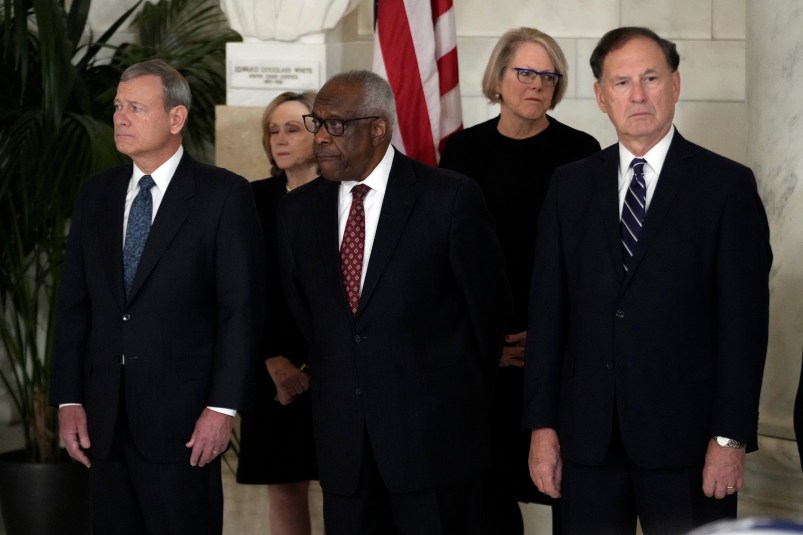Another follow-up on the Greenberg/Carville memo. And before proceeding, let me again stipulate that I think the thrust of what they say in it has been mistaken in some cases and tendentiously distorted in others.
That said, take this passage from the front of the memo, in which they ask why there has not been more fallout for the president from the public’s very negative response to phase-out …
This ought to be the Democratsâ moment, as the presidentâs Social Security proposal crashes against the wall of the publicâs deep doubts. Support for the presidentâs proposal has fallen to 36 percent and perhaps even lower, depending on question wording.
1 Worse for the president, 40 percent of voters strongly oppose his plan, rising to 63 percent among seniors. Congressional Democrats are now winning voters over 45 years by 12 points, according to the NPR survey, after faltering badly among aging voters just 4 months earlier. But Bushâs plan is not that popular with younger voters who divide evenly on it.So, we ask progressives to consider, why have the Republicans not crashed and burned? Why has the public not taken out their anger on the Congressional Republicans and the president? We think the answer lies with votersâ deeper feelings about the Democrats who appear to lack direction, conviction, values, advocacy or a larger public purpose.
So does this mean the Democrats <$Ad$>are being punished for not having their own ‘plan’? For only saying ‘no’? That can’t possibly be what the authors’ mean. And to know that you need only look at your calendar. The president is less than eight weeks into his second term as president. And over that period his approval on Social Security has collapsed. To imagine that what we should expect is that his presidency would now be mired in some crisis of legitimacy is ridiculous.
Believe me, give it time. If the Democrats handle this right, the political suffering of the president and his party has scarcely begun. And they should suffer mightily for pressing a policy that would carve a path of devastation through the American middle class.
The grafs above only make sense if what the two are talking about is a much longer-term problem of public fuzziness over just what Democrats stand-for. And that very much is a problem — one that had no little to do with their losing the presidential contest in November. But this is why Democrats need to take the opportunity of the Social Security debate to outline their values, their vision of where the country should be going on Social Security and related issues. Flatly opposing phase-out is not the problem; it’s the first step to the solution.






